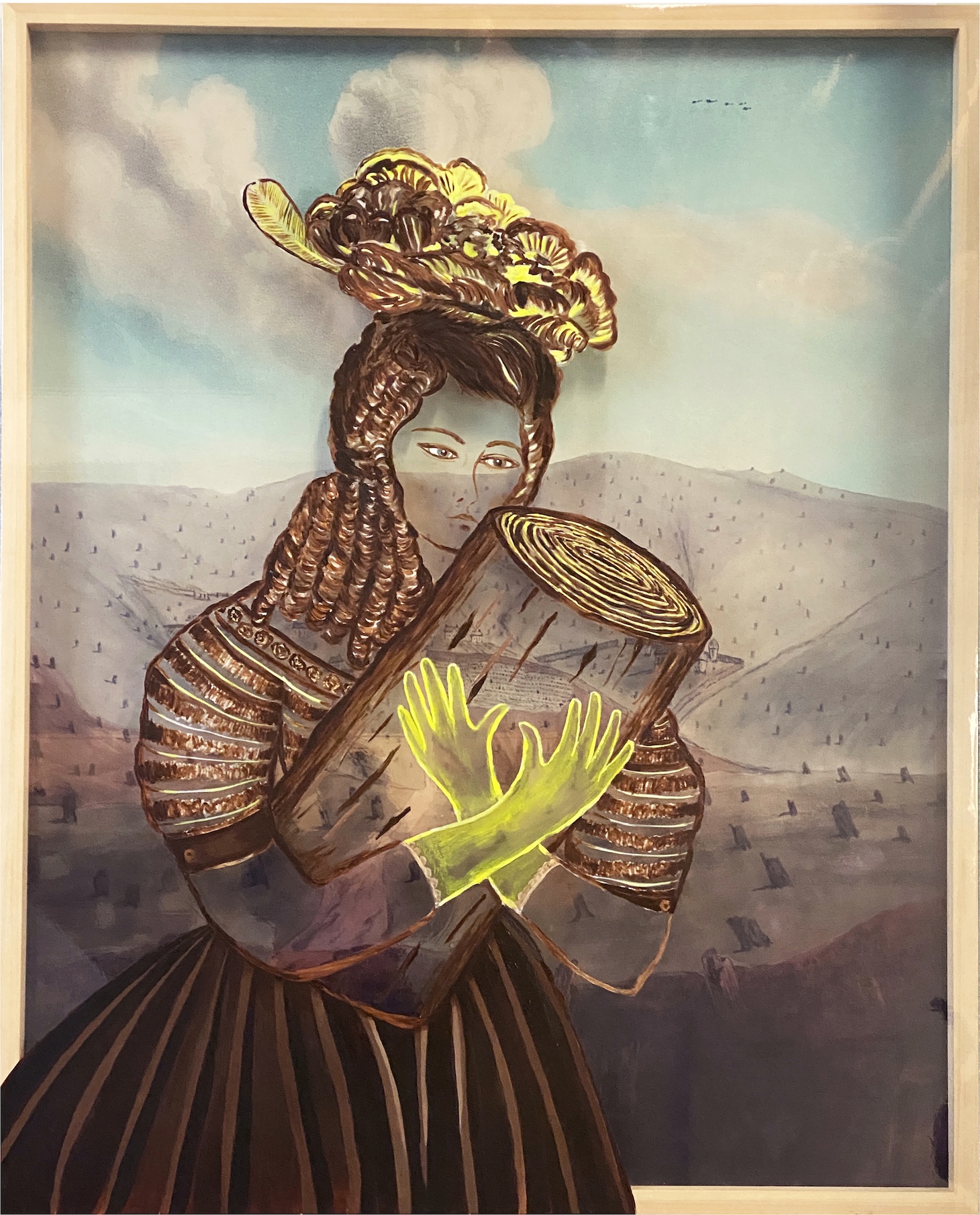
‘You were my biggest regret : diary entry 1806’, 2022 oil
paint on PVC with perspex backing150 x 120 cm
Joan Ross is known for her interdisciplinary practice that confronts Australia’s colonial legacy. In this portrait, she has painted herself as a colonial woman holding the stump of a tree with deep tenderness, like a lover.
‘There is regret in my eyes as I look back through time, thinking about the damage caused through colonisation,’ says Ross.
‘Behind me is a watercolour of Castle Hill [NSW] from 1806. My portrait fuses with this historical picture of colonisation. She sees, and we see, that she is a part of it, part of the greed and all the sadness and destruction colonisation has caused.’
Ross points out that trees have been on Earth for approximately 400 million years. ‘As a child seeing a tree cut down, I would imagine all the insects and spiders and birds living in them. I wondered where they would go – I envisaged them trudging along in a long line looking for a new home.’
Ross was a finalist in the 2021 Archibald. She won the 2017 Sulman and was the judge for this year’s Sulman Prize.

‘Joan as colonial woman looking at the future’
vinyl acrylic and ink on card
101 x 75.5 cm
‘I really love birds,’ says Joan Ross, who has painted herself ‘as a colonial woman, with a headless bird, thinking about what we need to do to manage our collective future’.
‘Birds have survived for 150 million years, but the greed and selfishness of colonisation in the last few hundred years mean that species of birds (and other ancient creatures) are becoming extinct at an exponential rate.
‘I hold the bird in this self-portrait with so much love and care, but also with the sadness and irony of an embrace with a bird that has no head; a symbolic warning.
‘Without recognising ourselves as colonisers who have a long history of deeply embedded and destructive attitudes, we have no hope of changing our behaviour and our future.’
Born in Scotland, Ross lives and works in Sydney. She is known for grappling with Australia’s colonial legacy through her artistic practice, which spans from drawing to virtual reality. In 2017, she won the Sulman Prize.